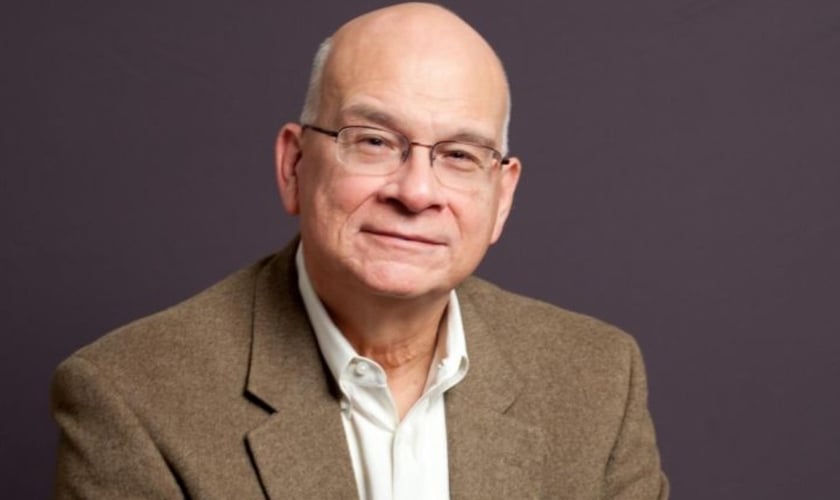I extend my deepest condolences for the passing of Rev. Timothy Keller in May 2023. May the God of all comfort surround his family, friends, and Redeemer Presbyterian Church in New York with His peace that surpasses understanding.
In the evangelical world today, reflections on Keller’s life abound with well-deserved praise. He was a faithful servant whose pioneering ministry in New York City, alongside his profound books, left an indelible mark on the late 20th and early 21st centuries. Such tributes rightly celebrate his gifts. In my twenties, I personally drew immense nourishment from works like *The Meaning of Marriage*, even gifting them to others. Keller’s reach, especially among young pastors, remains vast.
Nor was his influence confined to the church. Rarely has a pastor garnered such unqualified acclaim from secular media—from *New York Times* op-eds to pieces in *The Atlantic*. Yet as a public figure, his thought merits careful scrutiny, for we who hold the Bible as God’s inerrant Word must prize the praise of Christ above the world’s applause.
My unease first stirred in April 2022, when Keller tweeted that abortion—a grave sin claiming millions of unborn lives—is merely “a political issue”, urging Christians not to rush to judgment on its legalisation. What worldview permits such equivocation on the absolute evil of shedding innocent blood?
This question unveiled deeper fissures in Keller’s framework. He credits a middle school guidance counsellor—an ultra-leftist activist—for shaping his early convictions (*The Reason for God*, introduction, p. xi). In college, he fully embraced the Frankfurt School’s Critical Theory, a lens viewing all ills through “inequality” and power imbalances. Keller often invoked Gustavo Gutiérrez, father of Liberation Theology, who fused Marxism with Catholicism, coining “God’s preferential option for the poor.” This echoes throughout Keller’s ministry, as in *Generous Justice* (p. 7), yet it clashes with Scripture: “You shall do no injustice in judgment. You shall not be partial to the poor, nor honour the person of the mighty. In righteousness you shall judge your neighbour” (Leviticus 19:15, NKJV).
Critical Theory, antithetical to biblical anthropology, deems inequality the root evil, demanding revolutionary upheaval for a utopian equity. Rooted in atheistic materialism, it reduces persons not to God’s image-bearers with individual dignity and responsibility, but to group identities—race, gender, orientation—trapped in systemic victimhood. As Eric Voegelin observed, such Marxism revives ancient Gnosticism, eroding freedom and personal agency. Today, its offspring, Critical Race Theory, poisons curricula, fostering self-victimisation and societal decay—from surging homelessness in California to shoplifting in New York. During the 2020 BLM unrest, fuelled by these ideas, Democratic leaders defended the chaos, and Keller echoed them, framing rioters’ actions as “cries of the voiceless.”
This orientation seeped into Keller’s gospel. He recast Christ’s work: “Jesus’ life, death and resurrection was an infinitely costly rescue operation to restore justice to the oppressed and marginalised” (*The Reason for God*, pp. 56–57). Again: “The ultimate purpose of Jesus is not only individual salvation and pardon for sin but also the renewal of this world, the end of disease, poverty, injustice… God hates the suffering and oppression of this material world so much, he was willing to get involved in it and to fight against it” (*The Prodigal God*). Plausible at first glance, yet perilously reductive. For didn’t the angel clearly declare: “She will bring forth a Son, and you shall call His name Jesus, for He will save His people from their sins” (Matthew 1:21, NKJV)? Christ’s mission was foremost spiritual redemption from sin’s power, not to bring about a political liberation.
History affirms: Lasting progress flows not from political revolutions or social activism, but from soul-by-soul regeneration of the Holy Spirit through evangelism. The American Revolution of 1776 endures because its Protestant founders enshrined biblical truths of human dignity and liberty in the Constitution—evident in *The Federalist Papers*. Contrast the French Revolution, atheistic and reason-worshipping, which birthed bloodier tyranny.
Today, “progressive” forces jettison these freedoms for “diversity” and “equity,” birthing totalitarian edicts silencing dissent. In London, UK, June’s rainbow flags herald the LGBTQ movement, where biblical fidelity invites Orwellian penalties akin to Nazi conformity. Uniquely, this sin—homosexuality, deviating from creation’s order—is paraded as virtue, taught to children as celebration, while the church faces persecution for truth-telling.
Keller conceded homosexuality strays from God’s design, yet deemed the condemning church the greater scandal: “There are a number of conservative churches that will love their Hindu neighbours… but not their gay and lesbian neighbours.” He urged loving homosexuals “as you love Hindus,” prioritising cultural accommodation. In 2022, he pinpointed evangelicalism’s chief peril not as liberal theology eroding Scripture or external assaults via LGBTQ+ activism, but Christian nationalism and “fanaticism.”
More fundamentally, Keller’s evangelism leaned on worldly wisdom—philosophers over prophets—self-censoring offence for accessibility. Scripture warns:
“This wisdom does not descend from above, but is earthly, sensual, demonic. For where envy and self-seeking exist, confusion and every evil thing are there. But the wisdom that is from above is first pure, then peaceable, gentle, willing to yield, full of mercy and good fruits, without partiality and without hypocrisy. Now the fruit of righteousness is sown in peace by those who make peace.”
(James 3:15–18, NKJV)
“For the message of the cross is foolishness to those who are perishing, but to us who are being saved it is the power of God.”
(1 Corinthians 1:18, NKJV)
I carry a deep burden for the Body of Christ, where Keller draws uncritical acclaim. Let us not fuse social justice and creation care into the gospel, as with Keller or John Stott, but instead emulate Spurgeon, Tozer, and Lloyd-Jones—prophets defying cultural tides, proclaiming “the gospel alone!” Pastors, awaken: Catechise your flocks to discern lies, grounding them in biblical worldview. Thus vigilant, we await Christ’s return as a spotless bride, holy and expectant.



